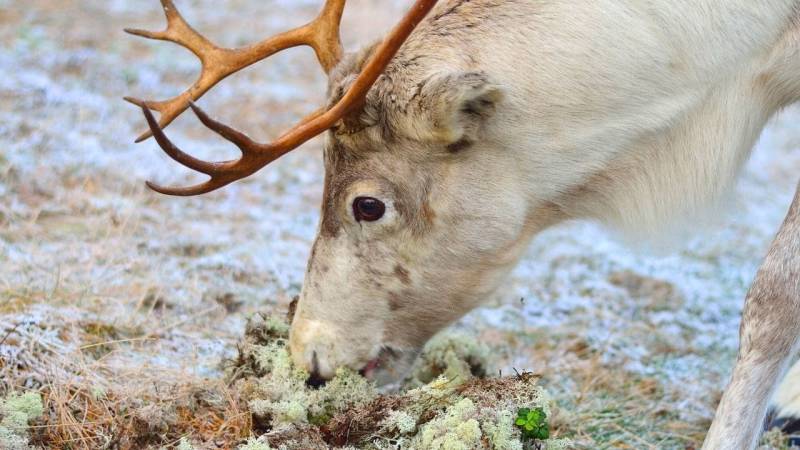
zoology
Noun
Meaning
Zoology is the scientific study of animals, their behavior, classification, and distribution. In the context of survival, bushcraft, wilderness, camping, and hiking, zoology plays a crucial role in understanding the animal kingdom and its interactions with humans. It helps us identify and differentiate between various species, their habitats, and behaviors, enabling us to coexist and navigate safely in the outdoors. Knowledge of zoology allows us to recognize potential threats, avoid dangerous encounters, and make informed decisions when it comes to food, water, and shelter. Understanding zoology enhances our overall survival skills and deepens our connection with the natural world.

Examples
„In zoology we learn the importance of understanding the tracks and behaviors of animals in the wild in order to safely navigate a survival situation.“
„By studying zoology, hikers, and campers can learn how to respectfully observe wildlife without endangering them or themselves.“
„Knowledge of zoology helps bushcraft enthusiasts distinguish edible from poisonous animals and thus find a safe source of food in nature.“
„Knowledge of animal behavior and ecology that comes from zoology is crucial to developing and applying survival strategies in the wild.“
„For lovers of outdoor activities, zoology offers fascinating insights into the lives of animals, enriching the camping experience and promoting a deeper understanding of nature.“
Origin
Zoology is a word that originates from the Greek words "zōion" meaning "animal" and "logos" meaning "study" or "knowledge". It is the branch of biology that focuses on the scientific study of animals, including their behavior, classification, physiology, and distribution.
The study of zoology can be traced back to ancient civilizations, where early humans observed and interacted with animals in their natural habitats. These observations led to the development of basic knowledge about different animal species and their characteristics.
Over time, zoology evolved as a formal scientific discipline, with the establishment of universities and research institutions dedicated to the study of animals. The field expanded with the development of new technologies and methodologies, such as microscopy and DNA analysis, which allowed for more detailed and accurate observations and classifications.
Today, zoology encompasses a wide range of sub-disciplines, including ethology (the study of animal behavior), comparative anatomy (the study of anatomical differences and similarities between species), and ecology (the study of how animals interact with their environment).
As our understanding of the natural world continues to grow, zoology plays a crucial role in conservation efforts, helping us to better understand and protect animal species and their habitats.
Synonyms
Animal science, Animal biology, Animal studies, Animal research, Animal knowledge, Animal anatomy, Animal physiology, Animal behavior
Antonyms
Botany, Geology, Physics, Chemistry, Mathematics, Astronomy, Psychology, Sociology
Relatives
Animal behavior, Wildlife conservation, Ecology, Evolutionary biology, Animal anatomy, Animal physiology, Animal taxonomy, Animal ecology
Historical and cultural importance
Zoology is the scientific study of animals, their behavior, classification, and distribution. It has a rich historical and cultural significance, dating back to ancient civilizations.
In ancient Egypt, for example, animals held a sacred status and were often depicted in their artwork and mythology. The Egyptians believed that animals possessed divine qualities and were closely connected to the gods. This reverence for animals influenced their understanding of zoology and the classification of different species.
In ancient Greece, philosophers like Aristotle made significant contributions to the field of zoology. Aristotle's work, "Historia Animalium," laid the foundation for the scientific study of animals. He classified animals based on their characteristics and observed their behavior in their natural habitats.
During the Renaissance period, zoology experienced a resurgence as explorers and naturalists embarked on voyages of discovery. They documented new species and expanded our understanding of the animal kingdom. The works of naturalists like Carl Linnaeus and Charles Darwin further revolutionized the field, introducing the concept of evolution and the classification system still used today.
Today, zoology plays a crucial role in conservation efforts, understanding animal behavior, and studying the impact of human activities on wildlife. It helps us gain insights into the intricate web of life on Earth and informs our efforts to protect and preserve biodiversity.
More information about the term zoology
Exploring the Fascinating World of Zoology
Zoology, the scientific study of animals, is a captivating field that allows us to delve into the diverse and intricate world of wildlife. As a nature enthusiast and survival expert, I have always been drawn to the wonders of zoology. In this article, we will explore the importance of zoology, its various branches, and how it contributes to our understanding of the animal kingdom.
The Significance of Zoology
Zoology plays a crucial role in our understanding of the natural world. By studying animals, we gain insights into their behavior, anatomy, physiology, and ecological interactions. This knowledge helps us conserve and protect endangered species, manage wildlife populations, and even develop medical advancements. Zoology also allows us to appreciate the beauty and complexity of the animal kingdom, fostering a sense of wonder and respect for all living creatures.
Branches of Zoology
Zoology encompasses various branches, each focusing on different aspects of animal life. Here are a few notable branches:
1. Comparative Anatomy: This branch examines the similarities and differences in the structure of animals, providing insights into their evolutionary relationships.
2. Ethology: Ethology studies animal behavior, including their communication, social interactions, and mating rituals. It helps us understand how animals adapt to their environments and interact with other species.
3. Physiology: Physiology explores the internal workings of animals, including their organ systems, metabolism, and adaptations to different environments. This branch is crucial for understanding how animals survive and thrive in their habitats.
4. Ecology: Ecology focuses on the interactions between animals and their environment. It examines topics such as population dynamics, food webs, and the impact of human activities on wildlife habitats.
Contributions to Survival Skills
As a survival expert, my knowledge of zoology has been invaluable in honing my skills in the wilderness. Understanding animal behavior and ecology allows me to identify potential food sources, track game, and avoid dangerous encounters. For example, knowing the habits of certain predators helps me avoid their territories, while recognizing edible plants and insects ensures I can sustain myself in the wild.
Zoology also provides insights into animal adaptations, which can inspire innovative survival techniques. For instance, studying how animals insulate themselves from extreme temperatures has helped me develop effective shelter-building strategies.
Conclusion
Zoology is a captivating field that allows us to explore the wonders of the animal kingdom. By studying animals, we gain valuable insights into their behavior, anatomy, and ecological interactions. This knowledge not only contributes to our understanding of the natural world but also enhances our survival skills in the wilderness. So, let's continue to appreciate and learn from the fascinating world of zoology.
Back to overview

